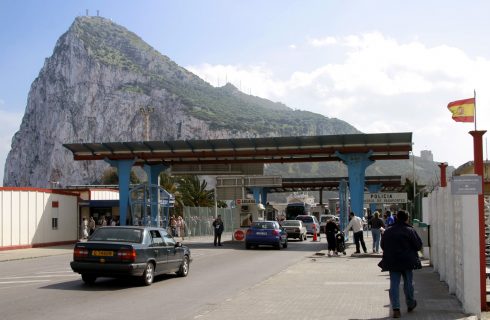JANUARY is a key time for businesses, self-employed workers and consumers in Spain.
This is for two reasons: the tax year in Spain starts on January 1; and any new laws affecting business can only come into effect on two dates each year, either early January or early July.
New laws that came into effect on January 2 in 2022 affect the warranty period of consumer goods, taxes for self-employed (autonomo) workers, corporate taxes for new businesses, registration taxes for new vehicles and cold calling ethics.
Below is an overview of what these laws are and how they affect expats living in Spain.
Non-lucrative visa financial requirements
The non-lucrative visa is one of the most popular ways for non-EU citizens to gain residency in Spain – including for UK citizens after Brexit.
To obtain the non-lucrative visa you do not need to work in Spain, you can bring your family along, and you can renew the initial yearlong visa for the five years necessary to obtain permanent residency in Spain.
However, to get the visa you need to prove you have the financial means to support your residence in Spain for the first year without working.
Non-lucrative applicants must have at least 400% of Spain’s IPREM indicator – this is an index determining the average minimum income for an individual on an annual basis.
On January 1 in 2022, the IPREM rose to €578.02 per month, meaning non-lucrative visa applicants will need to prove funds above €27,792.96 in their bank account.
An additional €6,948.24 is needed per additional family member.
The rise equates to €20 more than in 2021 and €50 more than in 2020. Over the whole year, this means non-lucrative visa applicants need €600 more in their bank accounts than those who applied in 2021.
Warranties for consumer goods
From January 2022 new EU-wide laws on consumer goods have made significant changes to the warranty period of goods, the time period in which a defect is considered pre-existing, and the first-ever application of warranties for digital goods and services.
The law was approved by Spain’s parliament in the summer (see the BOE here) and have benefits for consumers buying second-hand goods in particular, such as second-hand cars.
The new laws extend the period within which a seller is obliged to pay for repairs from 6 months to 12 months.
This means that if a second-hand car needs repairs due to pre-existing faults – and the seller did not state these faults in the original purchase contract – the seller must pay for any repairs within the first year.
For the first time, from January 2022 any digital goods such as applications, video or audio archives, digital games, electronic books or similar have a two-year warranty.
Any physical or digital goods or services that last more than two years (such as subscriptions) will have a warranty equal to the entire supply duration.
Sellers are also required to keep repair materials for any goods sold for up to 10 years, in aims to boost a circular economy in the EU.
These changes could see increased prices for physical and digital goods in 2022, as sellers account for potential repair costs and disputes.
Registration tax for new vehicles
The price of a new car in Spain is likely to increase from January 2022 due a new law on registration tax (impuesto de matriculación).
This tax is paid once, usually included in the purchase price, and only affects prices of brand-new cars.
It is expected to increase purchase prices by around €800-€1000 more than in 2021 – but the final cost depends on the CO2 emissions of the car in question, meaning that electric or hybrid car purchases will likely be exempt.
The most affected cars are those emitting more than 121g/km of CO2.
Dogs and cats now ‘sentient beings’
In April 2021 Spain’s parliament approved a law recognising dogs, cats and other domestic animal as sentient beings with a capacity to feel.
This law comes into effect in January 2022, and besides being a win for animal rights will have repercussions in divorce cases, inheritance and in civil cases.
Concerning divorce cases and inheritances, courts will have to consider the wellbeing of an animal before entrusting it into the custody of another individual.
It also means pet owners have a right to compensation for moral injuries if their animal is hurt or abused by another person.
Cold callers
The new Code of Ethics comes into effect in January 2022, which will affect cold calls from telecommunications giants such as Movistar, Orange, Vodafone and Masmovil.
Under new laws sales calls cannot be made before 9am or after 9pm on weekdays, and are prohibited on weekends and public holidays.
Sales calls are also discouraged before 10am and between 3pm and 4pm on weekdays.
Cold callers are only able to call 3 times a month, and if a potential customer is not interested calls must cease for at least 3 months.
Retirement age
The retirement age in Spain will also rise for Spanish residents who have not paid tax contributions for a set period of time.
Any tax resident in Spain who has paid contributions for fewer than 37 years and 6 months will only be eligible for 100% of their Spanish pension at 66 years and 2 months of age.
If you have paid sufficient tax contributions, you may retire at 65 with 100% of your Spanish pension.
The pension age is set to rise until 2027, by which time the minimum time period for tax contributions that allows you to retire at 65 with 100% of your Spanish pension will be 38 years and 9 months.
By this time, if you have not paid sufficient contributions, you may only claim 100% of your pension at 67 years of age.
Autonomo taxes and corporate taxes
Social security contributions for self-employed workers in Spain (autonomos) will rise by €8 monthly in 2022.
This means a monthly increase from €286 to €293.76 for self-employed workers paying the full social contribution rate – meaning autonomos will pay around €96 more per year.
First-time autonomos will still pay the reduced €60 for their first year of activity, rising to €150 monthly in their second year of activity.
Depending on the region in which you are registered as autonomo, you could be eligible for grants:
- The region of Andalucia is offering up to €6000 for small businesses undertaking digitisation projects until May 26 in 2022.
- The Balearic Islands are offering up to €5000 for self-employed workers forced to cease activity due to the COVID-19 pandemic.
- The government of Catalunya is offering up to €13510 for entrepreneurs aged 18-29, and enrolled in the youth programme Garantia Juvenil.
- In Extremadura self-employed workers may received up to €9000 for the promotion, consolidation or modernisation of their work.
- The Castilla y Leon government are offering between €4000-€6000 for any entrepreneurs and self-employed workers moving into the region.
New laws in Spain in January 2022 also reduce corporate tax from 15% to 10% for newly-created entities. There is a minimum rate of 15% corporate tax on companies invoicing over €20 million annually or those in the banking and hydrocarbon industries.
READ ALSO:
- ¿Que? Eight of the strangest laws in Spain
- Insider tips: How to save more money as an autonomo in Spain during 2022
Click here to read more Spain News from The Olive Press.








